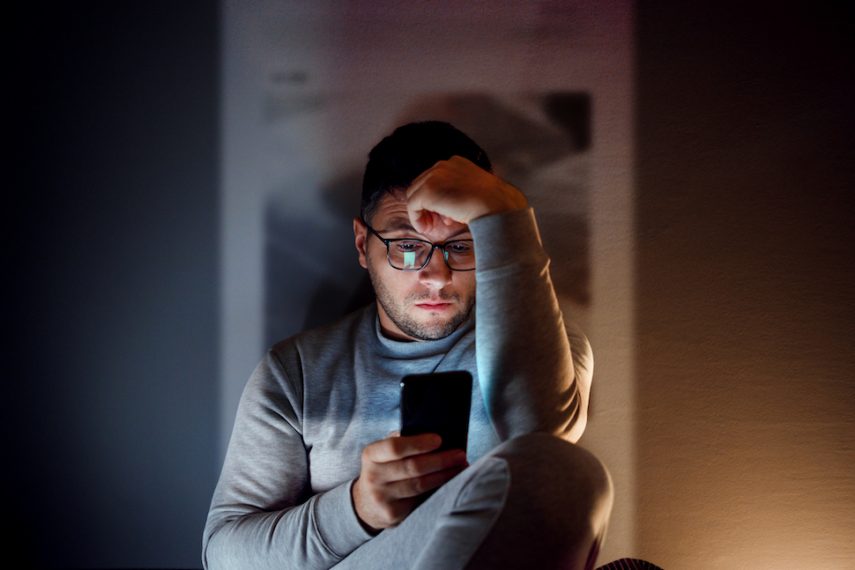5 Ways Social Media Is Affecting Your Mental Health

Social media can be a fun distraction. It can also be detrimental to mental health. The use of social media has been connected with destructive social comparison, low self-esteem, depression and anxiety, social isolation, and bullying. Social media may provide some benefits when limited, but the addictive nature of the cycle of posting, clicking, and liking makes it hard to stop or set boundaries.
If you’ve ever thought about decreasing your social media time, you’re on the right track.
Researchers repeatedly find that social media can be bad for your mental health. This doesn’t mean it has to harm you or that any degree of use is bad.
However, it’s easy to get addicted to the clicks and likes and have trouble finding a balance between healthy and harmful use.
1. Social Media Gives You FOMO
The dreaded fear of missing out, or FOMO, rears its ugly head all the time on social media. When scrolling through other people’s posts, you can quickly get the sense that you’ve missed out on activities, inside jokes, or new friendships.
This feeling is particularly hurtful if you see friends or family online doing things without you. Realizing that you’ve been left out of a party or other event feels awful and can leave you feeling depressed, sad and lonely.
Seeing all the great things other people have in their lives can also give you a powerful sense of inadequacy. You’re not just missing out on events or parties. You may also feel like you’re missing out on a better life.
2. You Spend Too Much Time Comparing Yourself to Others
Comparison with others can be positive and motivating, but it can also be bad for your mental health. Keep in mind that people often only post the good things in their lives. Many only give the highlights, which paints a false picture of a perfect life.
That friend with what seems like the perfect career that you never achieved isn’t showing you all the downsides. She’s not posting about the 80-hour workweeks or the fact that she doesn’t have time to start a family or maintain a healthy relationship.
Social media posts can also give you a skewed view of beauty and appearance. Influencers often have pro photographers and makeup, great lighting, and the right pose to get shots just right. They also use filters to remove imperfections. Even if you know this is the case, after seeing so many pictures of perfection, it’s easy to experience low self-esteem.
3. It’s Isolating You
The name social media indicates a coming together of friends, family and acquaintances. It certainly can be a tool for that, but too often, it leaves people more isolated than they would be otherwise.
Multiple studies indicate that social media use correlates with greater social isolation. In one study, researchers monitored 143 college students. One group used social media normally, while the other was limited to 30 minutes per day for several weeks. Those who limited their use experienced less depression and loneliness.
Another study involved over 1,000 adults and found similar results. Those that reported more than two hours a day of social media use felt more socially isolated than people who scrolled for 30 minutes or less.
There is a definite correlation, but the cause isn’t 100 percent clear. It could be that lonely people are more likely to turn to social media sites. It may also be that social media use limits the time people spend in face-to-face interactions. Real-world social interactions are good for overall wellness and can’t be replaced by online connections.
4. It’s Making You More Depressed and Anxious
Many studies have found that social media use increases feelings of anxiety and depression. Much of this results from comparison. Social comparison online can lead you to ruminate on what you’re missing and what could be better in your life. Rumination is a core characteristic of depression.
These studies show that the time spent on social media is important to note. The more time people spend online using social media sites, the more likely they are to have depression symptoms. There is also a correlation between time online and anxiety.
Another reason that social media use may trigger anxiety and depression is the isolation factor. Humans are social animals, and if social media replaces a lot of your face-to-face interactions, it can impact your mental health.
5. Social Media Makes You Vulnerable to Bullying
This is especially a risk for young people, but anyone on social media can fall victim to bullying trolls. People say things online they wouldn’t to your face. Trolls seem to take delight in going online to make other people miserable.
According to a study from the Pew Research Center, 59% of teens have been bullied online. Some of the behaviors they reported include:
- Name-calling
- Fake rumors
- Explicit images, both received and shared without consent
- Stalking
- Physical threats
Bullied children and teens are more likely than their peers to develop depression and anxiety and to have low self-esteem. Event witnesses to bullying experience negative mental health consequences, including anxiety, depression, and stress.
Adult bullying online also happens, and the victims can struggle with the same issues as young people. You may have more coping mechanisms as an adult, but the hurt is just as strong.
Call for a Free Confidential Assessment.
877-727-4343Why Is It So Hard to Stop Scrolling?
Social media isn’t inherently bad for you. It becomes a problem when you can’t stop. Social media sites are designed to trigger addictive tendencies. The visual and sound stimuli, like the thumbs up on a post or the ding of a notification, trigger the pathway in the brain associated with pleasure and reward.
The pleasure you experience from getting a “like” or “comment” triggers dopamine release in the brain. Dopamine is a feel-good brain chemical. It has an evolutionary benefit, encouraging you to engage in positive activities like exercise and social interaction.
Drugs hijack this pathway, but social media can do it too. Over time, you find you want the pleasure of a post recognition more frequently. In between, when you’re off the phone or not getting any likes, you begin to crave it.
This is a simplified explanation of addiction. You don’t have to become addicted to social media. And, you don’t have to be addicted to experience many of its negative mental health consequences.
The more you let yourself get hooked, the more likely it is that online activities will harm your mental health. Armed with this information, you can make positive changes to limit social media use and protect your mental health.
Can Social Media Ever Be Good for Mental Health?
Social media isn’t all bad. It can’t be used as an excuse for all mental health woes. When used the right way, social media platforms can be neutral or even beneficial. For instance, it provides a chance to connect with others.
If your family lives far away, for instance, you can easily stay in touch on these platforms, helping you feel more connected. If you have a mental illness that makes normal social interactions difficult, online communities provide an outlet.
Social media can also connect you to peer support groups for mental illness, grief, and more. You can access information online more efficiently than ever. You may even be able to connect with your mental health care providers, facilitating better engagement with your treatment.
Social media can be a useful tool in moderation. Be aware of the pitfalls and risks. By understanding how it can be harmful, you can make better choices about using social media. And if you try to limit your use and find you can’t, reach out to mental health professionals who can help you set and achieve positive goals.






